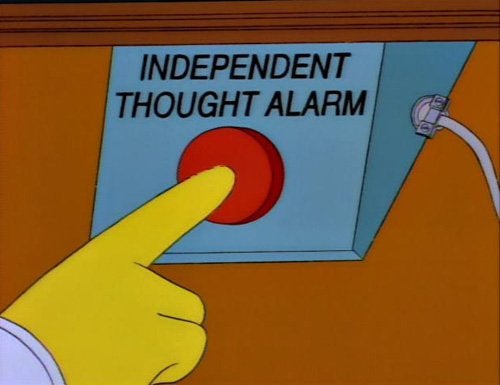I realize we live in a time of heavy confirmation bias, and people get into their digital filter bubbles or news bubbles and don’t necessarily come out for air that often, so most arguments of semi-logic fall on deaf ears in such an environment. But this morning, up too early for daylight savings, I read an article on contingency management, which is a way of treating addiction. Essentially, for showing up at check-ins and appointments, addicts can receive between $1 and $50. While it’s been highly-effective in studies, especially for meth and cocaine addiction, basically no insurers will touch it because there’s an idea it violates the federal kickback statute, i.e. if you give an addict $50, won’t they just go spend it back on meth?
All of this gets framed up as “moral objections,” which you hear a lot these days, including around (for generations) abortion. Personally I’ve never understood the whole abortion discussion, because it seems like most medical professionals have no true idea when life begins — heartbeat might be at 22 days? — and if people paid to know this stuff don’t really know it, why are we making such a big deal out of it? Also: if you bring a kid into the world via two parents and a family ecosystem that are not ready to handle the kid (insofar as anyone is ever “ready”), what good will that do for society? I know there are adoption and foster options, yes.
Got a bunch of addiction in my own family. I don’t write about it a lot, although I have, and my personal take would be “This is a real cancer on communities and families. If we find something that works, we should pursue it.”
Then you hear all the “moral objections” stuff and wonder, well, isn’t the dissolution of a community a bigger moral objection than the concept itself?
Last night I was at this dinner with some people and one guy, older/white, was bitching about his neighborhood (elite ‘hood) and crime being on the rise. Someone proposed moving. He pointed to the thing you hear a lot now: if you leave a certain neighborhood, the case from the sale won’t be enough to get you into a neighborhood you want to be in. That’s why increasingly the renter population of cities is older and richer.
But again, “moral objections” + bitching about something can rule the day during Confirmation Bias Era, but … what if we just tried things that worked, even if they don’t 1000% align with our morals, for the greater moral good?
It seems to me the fact we can’t do this easily underscores that, for all we talk about the world being data-driven now, it’s actually incredibly belief-driven, and the data-driven thing is something we all pretend.
Thoughts?
